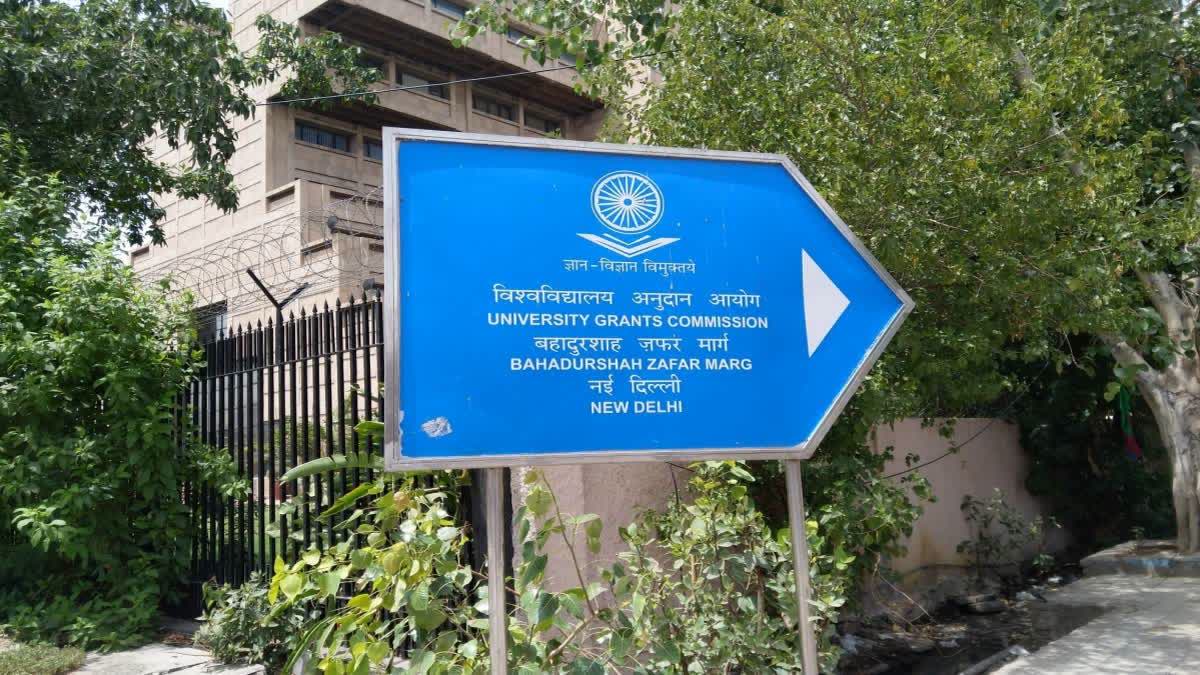New Delhi:The University Grants Commission (UGC) has asked colleges and universities across India to make Basic Life Support (BLS) training mandatory as knowledge on such techniques could have saved 3.5 lakh lives from sudden cardiac arrests.
In a letter to the vice chancellors and principals of universities and colleges, UGC secretary Prof Manish R Joshi asked the higher educational institutions to provide BLS training in consultation with the medical fraternity for the benefit of students, faculty and staff.
“As you are aware, sudden cardiac arrest cases have become a leading cause of mortality in India, claiming thousands of lives each year. A study reveals an annual death rate of one crore in the country, with one million attributed to sudden cardiac arrest alone. The critical 3 to 10 minutes during cardiac arrest, as emphasized by cardiologists, could save 3.5 lakh lives if bystanders performed chest compressions within this time frame. Unfortunately, a mere 0.1 percent of people are aware of basic life support techniques. Therefore, it is desirable to provide BLS training in the education sector, which could potentially save numerous lives,” said Prof Joshi in the letter.
In India, sudden cardiac arrest (SCA) is a significant public health concern. Approximately 5-6 lakh people die every year due to SCA and a significant proportion of these cases occur in individuals under the age of 50.
“India faces a sharply increasing burden of SCA. Bystander CPR rates are low, and awareness about SCA identification needs improvement. Expanding emergency medical services (EMS) is essential for shorter response times,” Dr Tamorish Kole, renowned health expert and past president of Asian Society for Emergency Medicine told ETV Bharat.
He said that in resuscitation science, the Chain of Survival outlines the critical steps to improve survival rates during cardiac emergencies. “The first link involves prompt recognition and activation by calling for emergency number (112) for help. Next, early cardiopulmonary resuscitation (CPR) is crucial, emphasizing immediate chest compressions to maintain blood flow to vital organs. Finally, early defibrillation using an automated external defibrillator (AED) can restore a normal heart rhythm. Acting swiftly can make a life-saving difference,” he said.
“Only 2 percent of adults in India know how to perform cardiopulmonary resuscitation (CPR). This lack of awareness hinders timely intervention during cardiac emergencies. Immediate CPR can double or triple a victim’s chance of survival during sudden cardiac arrest. Every minute without CPR and defibrillation decreases survival chances by 7-10 percent,” Dr Kole added.
Bystander CPR, along with an automated external defibrillator (AED), significantly improves survival rates. Strengthening resuscitation training in India is essential for several compelling reasons, he said.
“First, India bears a high burden of sudden cardiac arrests, with a significantly higher incidence compared to many other countries. By enhancing training, more individuals can effectively respond during critical emergencies. Second, there is a lack of awareness and preparedness among the general population regarding basic life-saving techniques like cardiopulmonary resuscitation (CPR). Proper training can bridge this gap, empowering people to take immediate action when needed,” Dr Kole said.
